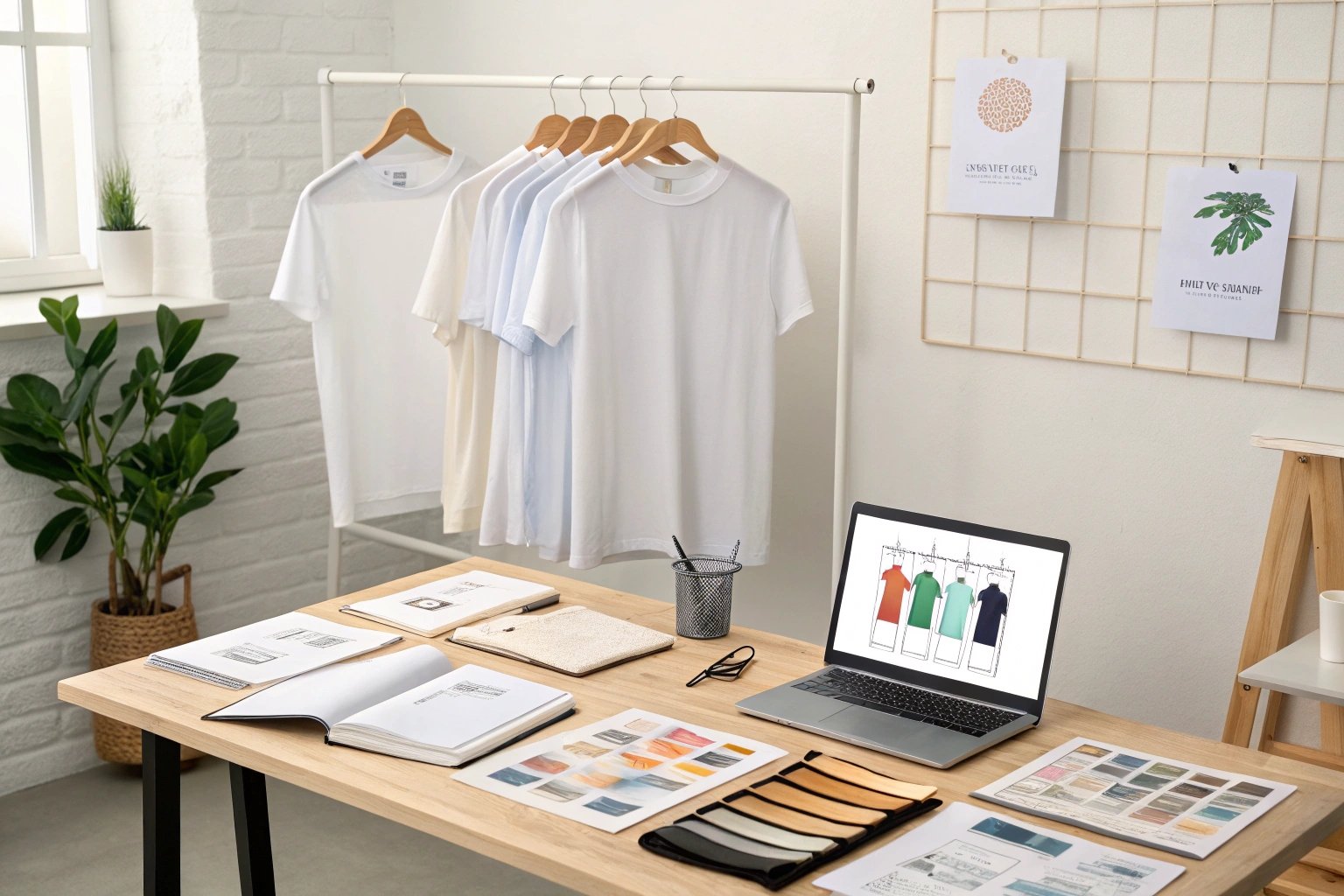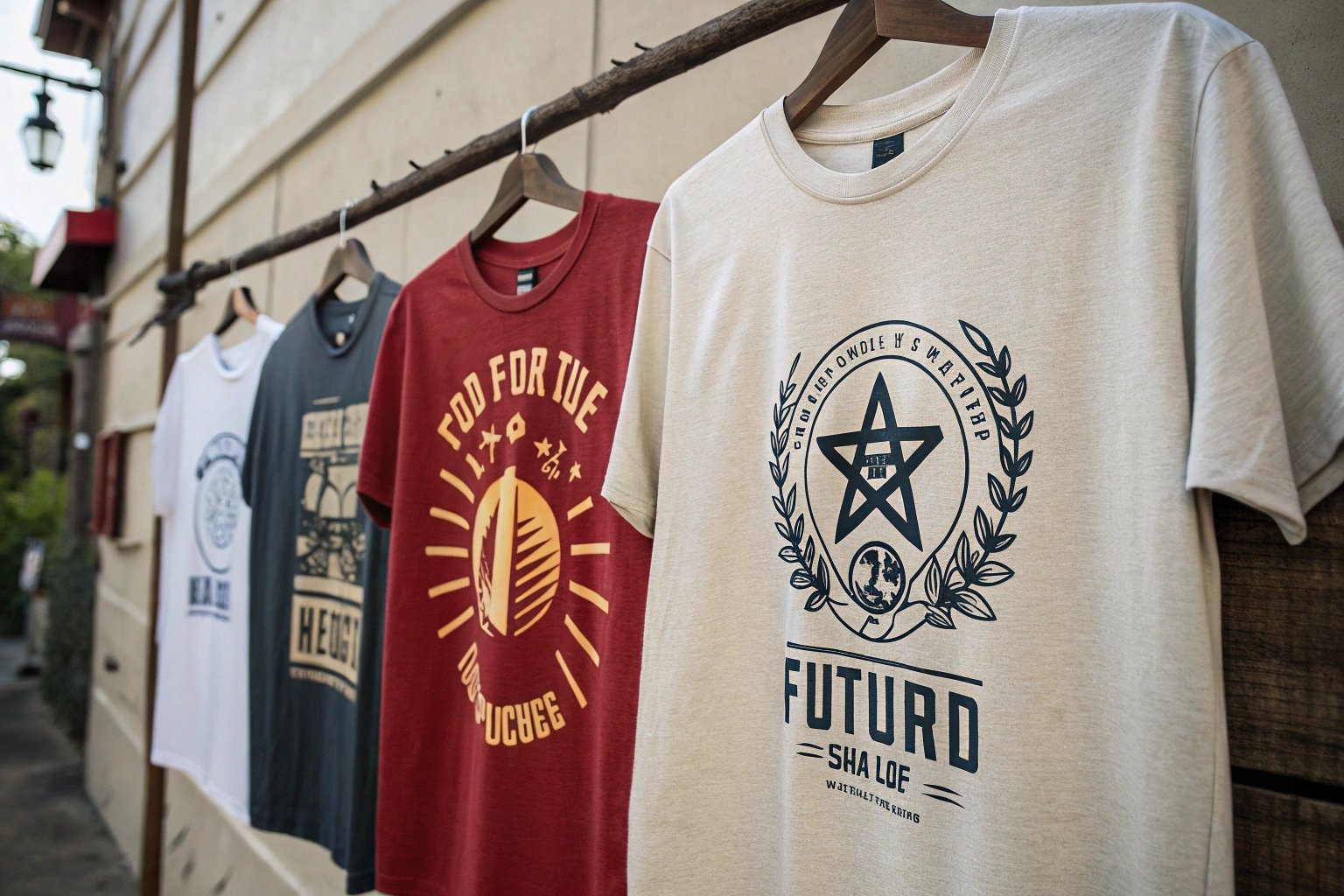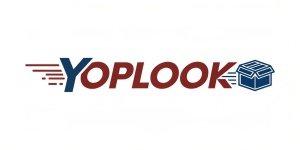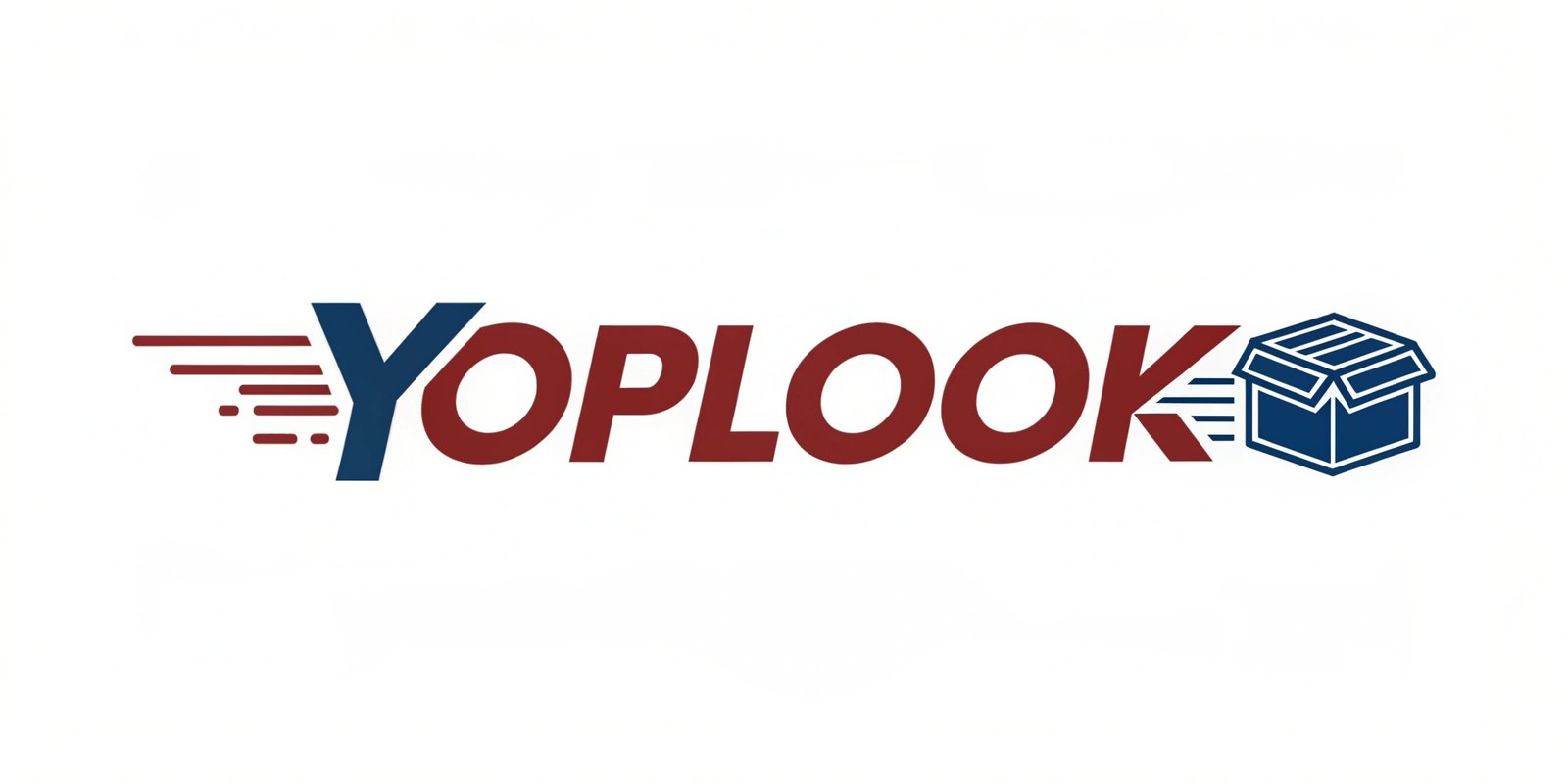To build a profitable custom T-shirt business in 2025, focus on niche branding, smart production, digital marketing, and customer-centric design. Profit follows precision.

In 2025, the custom apparel industry is bigger and more competitive than ever. That means you can’t rely on trendy prints alone. A profitable T-shirt business needs strong branding, fast production, targeted marketing, and loyal customers. If you’re building one from scratch—or fixing what isn’t working—this guide lays out the steps that matter most.
What niche should you target for your custom T-shirt business?
The most profitable T-shirt businesses in 2025 are laser-focused on niche markets like eco-conscious athletes, anime fans, dog lovers, or startup founders.
Trying to sell to everyone means you connect with no one. Successful T-shirt brands define a niche, then tailor every product, ad, and message to that group. For example, if you’re selling to Gen Z gamers, your designs, copy, and platforms should all reflect that vibe. A niche also helps you rank faster on search engines and build word-of-mouth. The more specific your target, the easier it is to stand out.
| Niche Example | Target Audience | Design Style |
|---|---|---|
| Vegan Lifestyle | Eco-conscious millennials | Earth tones, clean typography |
| Gym Motivation | Active 20-35-year-olds | Bold fonts, fitness slogans |
| Indie Music Fans | Gen Z creatives | Vintage graphics, lo-fi look |
What business model works best in 2025?
In 2025, the most agile and profitable brands use on-demand production, pre-sale drops, or small-batch manufacturing to reduce risk and control cash flow.
Print-on-demand platforms like Printful or Gelato allow you to design shirts without holding inventory. You only pay for shirts once they’re sold. This model works best when starting out or testing new designs. As your brand grows, you might shift to small-batch production for higher margins and quality control. Pre-sale drops are another effective way to fund new releases—customers order in advance, then you fulfill only what’s paid for.
| Business Model | Key Benefit | Ideal For |
|---|---|---|
| Print-on-Demand | No upfront cost, low risk | Beginners, trend testing |
| Pre-Sale Drop | Cash upfront, builds hype | Launching collections |
| Small-Batch | Lower unit cost, quality | Scaling established brands |
How do you design T-shirts people actually want?
Designs that sell well in 2025 are bold, emotion-driven, and tailored to niche culture or community values.

People buy shirts that make them feel seen. That could mean a slogan that reflects their mindset or an image tied to a community they love. Research what your niche talks about—on Reddit, TikTok, or forums. Then turn those insights into visuals. Simplicity often works best: one bold message, one iconic graphic, or a layout that works across colors. Also, make sure your designs look good both online and in real life.
| Design Element | Why It Matters | Example |
|---|---|---|
| Clear Message | Sparks emotional connection | “No Days Off” for fitness niche |
| Strong Visuals | Gets noticed online | High-contrast type or icons |
| Relevance to Niche | Builds instant trust | Local slang, niche symbols |
How do you price custom T-shirts for profit?
In 2025, profitable T-shirt brands focus on perceived value, not just cost-plus formulas. Smart pricing tells your audience you’re worth it.
If your shirt costs $10 to produce, many people start at $20. But if your brand is niche, has great visuals, and clear values, you might be able to charge $30–$45. It depends on your customer. Limited drops or added benefits like eco-materials or free returns also justify higher prices. Avoid underpricing just to compete—this often leads to zero margin and burnout.
| Shirt Cost | Selling Price | When to Use |
|---|---|---|
| $8–$12 | $20–$25 | Mass-market, basic branding |
| $10–$15 | $28–$35 | Branded, niche-focused |
| $15–$18 | $38–$45 | Premium materials, strong story |
What marketing works best for custom T-shirts in 2025?
To drive profit in 2025, you need storytelling, short-form video, email funnels, and community-driven content that puts your customer at the center.
The most successful T-shirt brands don’t just advertise—they build communities. Use TikTok or Instagram Reels to show your shirts in action. Share the story behind each design in your newsletter. Invite customers to submit photos or tag your brand in social posts. UGC (user-generated content) builds trust and lowers your ad costs. You should also invest in email flows—abandoned cart emails, welcome series, and VIP offers drive repeat sales.
| Marketing Tool | Benefit | Platform/Method |
|---|---|---|
| TikTok Reels | Fast brand discovery | Lifestyle videos + humor |
| Email Automation | High ROI, repeat sales | Klaviyo, Mailchimp |
| UGC Campaigns | Social proof, free content | Hashtag contests, giveaways |
What platform should you use to sell your T-shirts?
The best platforms in 2025 combine speed, flexibility, and brand control—Shopify, Etsy, and TikTok Shop lead the pack.
Shopify gives you total control over branding, data, and customer experience. It’s ideal for building a long-term, high-value brand. Etsy helps with early traction, especially if your designs are handmade or artsy. TikTok Shop is newer but exploding for viral apparel. Wherever you start, build an email list and eventually direct traffic to your own site. That’s where real profits scale.
| Platform | Strength | Best For |
|---|---|---|
| Shopify | Full brand control, scalable | Serious business growth |
| Etsy | Built-in search traffic | Art-focused or handmade shirts |
| TikTok Shop | Fast exposure via viral content | Trend-savvy niche brands |
Conclusion
Building a profitable custom T-shirt business in 2025 means thinking beyond design. You need a clear niche, a smart production model, audience-first marketing, and pricing that reflects your value. Whether you use on-demand printing or small-batch drops, what matters most is your ability to connect, deliver, and grow with your audience. Your success depends not just on what you sell—but how you sell it.

